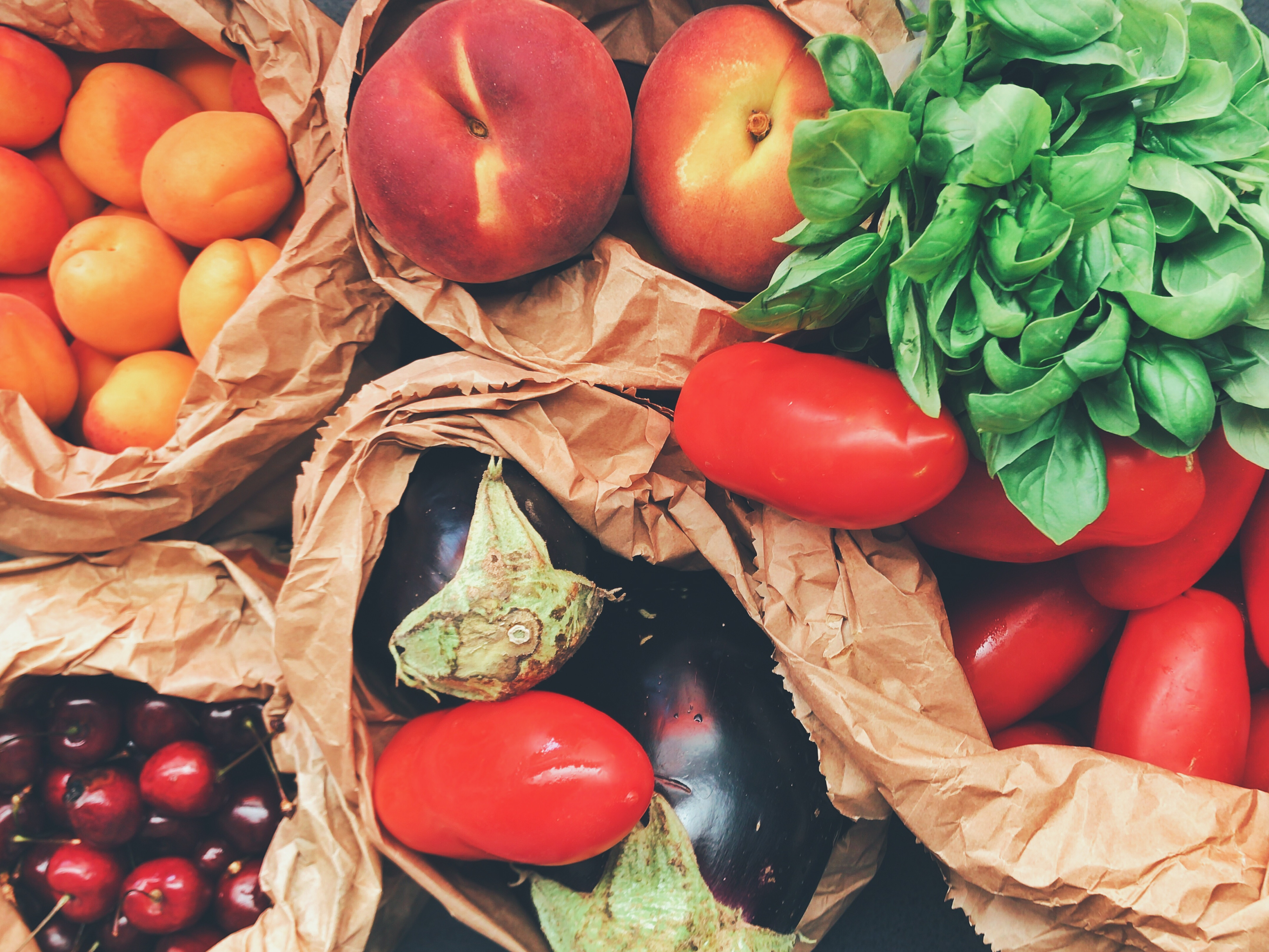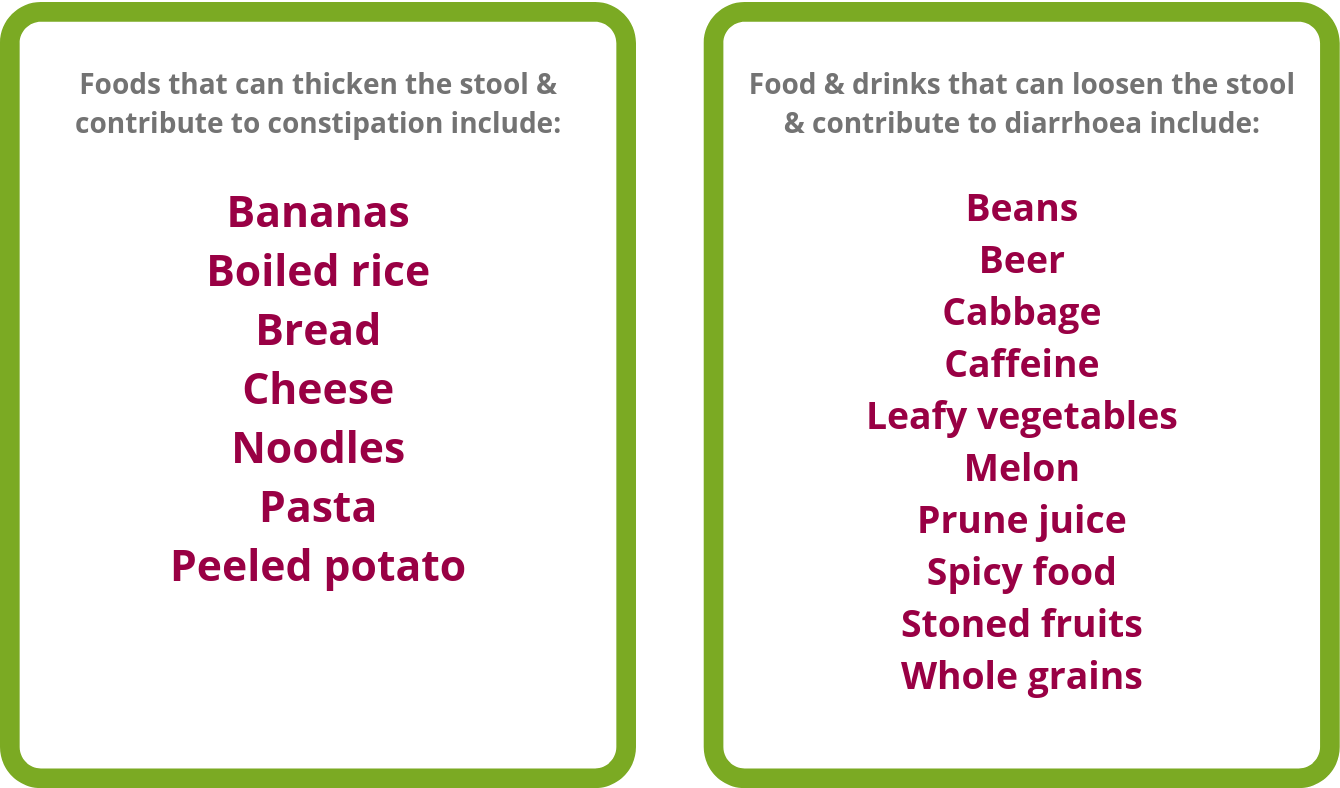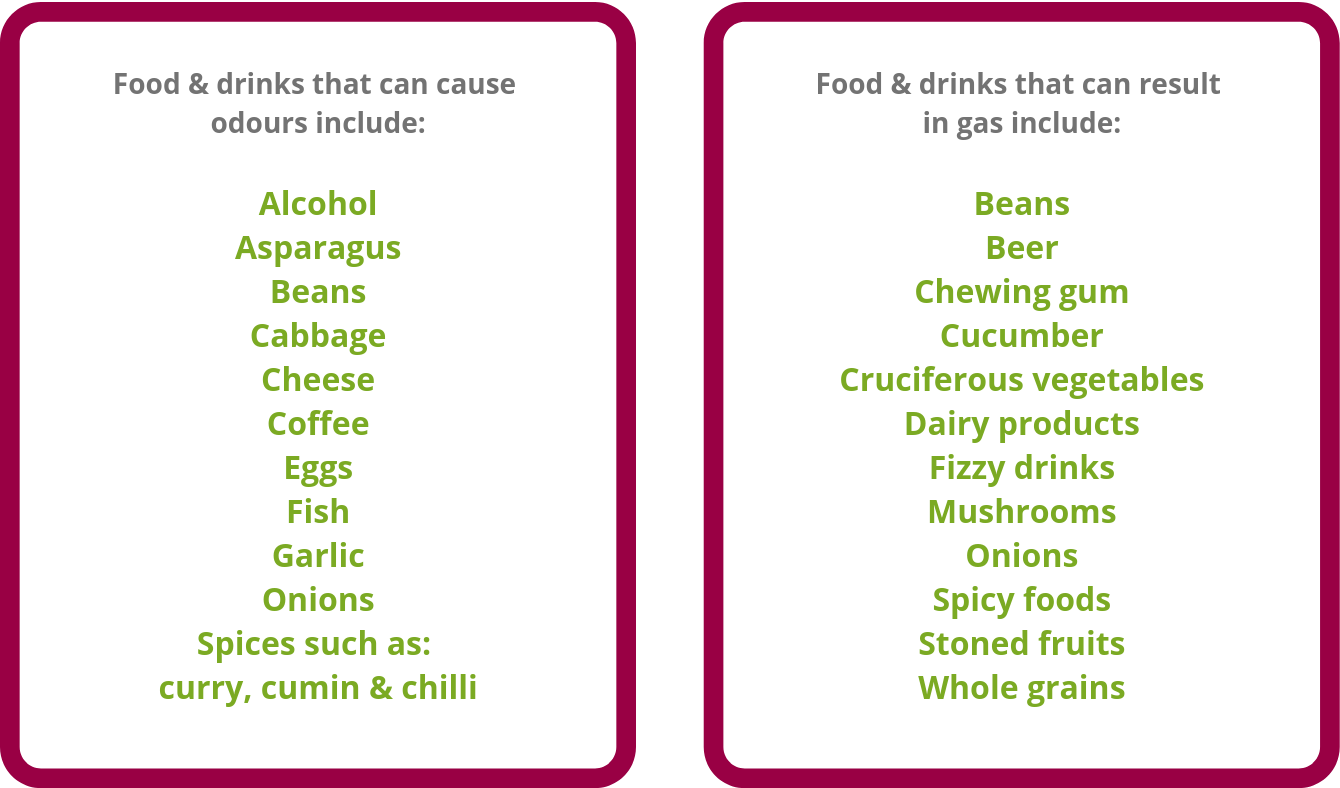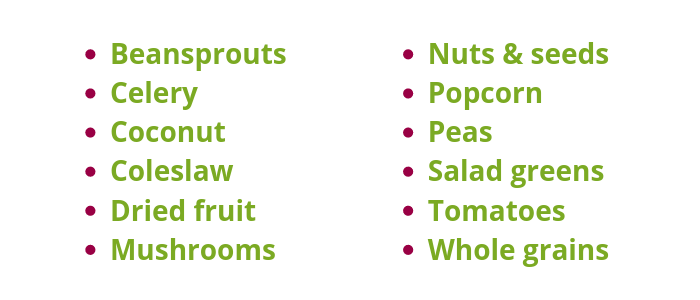Diet Tips for People Living with a Stoma

However, these issues do not mean that ostomates cannot still enjoy a full, rich and fulfilling relationship with food and drink. If you’re a person who enjoys their food, this can certainly continue even after receiving a stoma - all it takes is some education on the effects that different types of food could have on your condition.
Why do stoma patients need special dietary requirements?
In truth, living with a stoma does not come with any binding dietary rules, and does not mean that you strictly need to cut any types of food from your diet. Instead, ostomates should simply try to be aware of the needs of their bodies now they are reliant on an ostomy bag.
Generally, it is most important to remember that in the immediate aftermath of bowel surgery, the digestive system will take some time to recover, making it important to stick to foods that will be easier to digest.
After a few weeks of healing, the digestive system will basically work as before, apart from the fact that waste will collect inside the ostomy bag to be disposed of manually. Certain types of food will affect the flow of waste in different ways, potentially making the process harder to manage and requiring the bag to be replaced more regularly, which is why ostomates will want to think carefully about how to optimise their diet for the most comfortable lifestyle.
Basic advice on eating habits for ostomates
Even before considering the specific types of food that will best suit your health needs, it’s important to think about a few basic eating habits that ostomates should remember in order to look after their intestinal health:
- Eat regular meals to better regulate your stoma functions
- Drink plenty of fluids - on average, at least six to eight cups of liquid per day
- Chew your food well - this will help to break down the food before it reaches the stomach and avoid blockages in your digestive system
- If you need to take vitamins, ask your stoma care nurse or a dietician about how this will affect your condition
Many of these guidelines are generally good for digestive health regardless of whether you are a stoma patient, and will be beneficial to follow even if your stoma is temporary and you eventually no longer require an ostomy bag.
What kinds of food are best for ostomates?
There are three main types of ostomy treatment: colostomies, ileostomies and urostomies. Each has its own set of potential dietary issues and associated recommendations, so take some time to read up on your particular condition before planning your meals.
Colostomies
Colostomy patients have a stoma connected to their large intestine. Colostomates should generally be able to eat a regular, balanced diet, but will need to be wary of episodes of constipation or diarrhoea, and be careful about the types of food that cause this.

People with colostomy bags may also wish to be aware of foods that can create odours and gas, which can make the bag more difficult to manage.

Slowly increasing your intake of high-fibre foods or items that cause odours and gas may help your body get used to them, allowing you to gradually balance your diet over time.
Ileostomies
Ileostomy patients have a stoma connected to their small intestine. Bowel movements after an ileostomy are usually quite fluid due to the narrowness of the ileum, which means ileostomates need to be most aware of foods that can cause blockages - especially those that are high in fibre, including:

Many of these items are staples of a balanced diet, so ileostomates should not be looking to avoid the foods entirely; instead, they should initially limit their intake for the first six to eight weeks after surgery, and gradually reintroduce them to their diet.
Urostomies
A urostomy allows urine to leave the body without passing through the bladder. Generally, urostomates can eat a regular balanced diet, but the Urostomy Association suggests that patients should remain aware of the following issues:

By exercising caution around the above items and making sure to drink a healthy amount of fluids, it should be possible for people with urostomies to enjoy a full range of foods and drinks.
Eating healthily in the weeks after stoma surgery
Generally speaking, there should be no real need for ostomates to definitively restrict any part of their diet in order to stay healthy. However, those who have only recently undergone surgery will be advised to take a few precautions to allow their body to heal and get accustomed to the stoma, especially within the first six weeks.
Although your doctor will likely provide you with specific advice after your surgery, there are a few general tips that will apply in most cases:
- It is advisable to start eating regular food as soon as possible after surgery to get the intestinal system functioning again. However, it is best to start with foods that are softer and easier to digest
- Eat smaller meals and regular snacks, rather than large bulky meals, especially if your appetite is initially poor
- Protein-based foods such as meat, fish, eggs, cheese and milk can aid the initial healing process, while carbohydrates such as bread, cereals, potatoes, rice and pasta can provide much-needed energy
- Stick to plainer foods at first, avoiding spicy, highly seasoned dishes or fried foods to ensure your delicate digestive system is not unsettled
- Alcohol and fizzy drinks can over-stimulate the bowel and lead to wind and diarrhoea, so these should usually be avoided initially
- Reintroduce new foods to your diet slowly, one at a time and in small quantities, allowing you to adjust portion sizes to suit your needs
- Eat slowly, chew your food thoroughly, and dine in a relaxed setting to aid your digestion
Further reading
For more useful information for ostomates on how to eat healthily, check out the following resources:
- What to eat and drink with an ileostomy or colostomy - a dietary guide for ostomates from specialist ostomy appliance manufacturer Coloplast
- My Favourite Food - an online recipe book compiled by stoma patients in collaboration with Coloplast
- Healthy Eating - nutritional guidance for colostomates from the charity group Colostomy UK
- Diet and Exercise with a Stoma - a guide to eating and staying active with a stoma, from the Bladder & Bowel Community
- Nutritional Advice and Diet Tips - information on eating well for people with different ostomy-related conditions, from medical manufacturer ConvaTec
By reading up as much as you can on how best to manage your diet around the needs of your condition, you’ll soon discover that having a stoma doesn’t mean you can’t still enjoy your food and drink. As long as you’re careful and employ moderation, the world of fine food and memorable dining experiences remains very much open to you!
